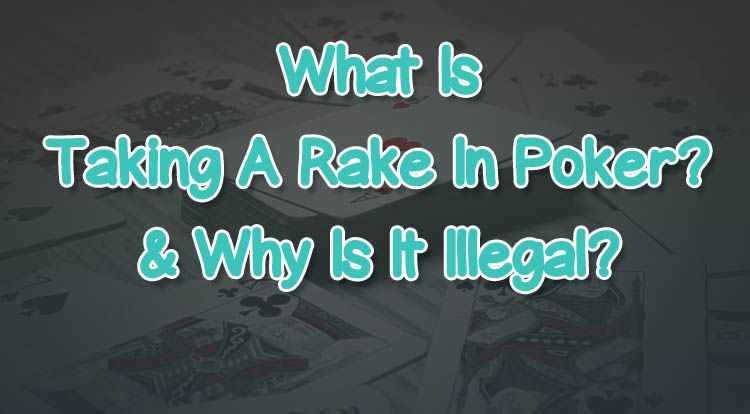
Poker is an iconic card game known to players worldwide. It's also full of jargon that can often puzzle players, especially the uninitiated ones. One such term is the concept of the 'rake'.
This term holds significant implications in the context of poker. In this Bonanza Slots article, we will delve into these intricate details to provide you with a comprehensive understanding of what taking a rake in poker means and why it's illegal in some circumstances.
What Is Taking A Rake In Poker?
In the poker world, 'taking a rake' signifies the process of charging a commission or a fee by a casino or a poker room from the players. This commission, usually a small slice of the pot, typically ranges between 5-10%. The exact percentage, however, can fluctuate depending on the specific game and the venue hosting it.
In an online poker scenario, the dealer, albeit virtual, is generally in charge of gathering the rake. The amassed rake is then employed by the casino or the poker room to offset various operational expenses. These expenses can include dealer wages, procurement of poker chips, and upkeep of the poker room.
Interestingly, the rake is typically not collected from the blinds but from the pots that a player has won. Moreover, the method of collecting the rake can vary; some casinos prefer to take it via the cash pot, while others might opt for tournament buy-ins.
What Is The Purpose Of A Rake In Poker?
The rake in poker serves multiple purposes, all of which contribute to the smooth functioning of a casino or a poker room.
Firstly, the rake helps in maintaining the poker room. The collected rake is used to cover a wide array of operational costs, such as dealer salaries, chip procurement, and maintenance of the poker room.
Secondly, the rake ensures profitability for the house. In poker, the casino acts merely as a facilitator, providing the venue and the dealer for the players. Therefore, the rake serves as a source of income for the casino, enabling it to make profits from every poker game it hosts.
Thirdly, the rake plays a pivotal role in facilitating fair gameplay. By charging a rake, poker rooms discourage certain exploitative strategies, thus maintaining the integrity of the game.
Why Is Taking A Rake In Poker Illegal?
The legality of taking a rake in poker isn't a straightforward matter. It varies significantly depending on the jurisdiction, the location of the game, and the specific laws and regulations in place.
In many countries and states, rakes are perfectly legal. However, there are jurisdictions where laws prohibit casinos from taking rakes in poker games or impose limits on the maximum rake amount.
For instance, in the UK, taking a rake is considered illegal if you're running a private poker game and taking a rake without a gambling license. This is because it's viewed as a form of gambling business since you are making money from facilitating gambling, and thus, it's considered illegal as it's unregulated.
Therefore, it's safe to say that taking a rake isn't inherently illegal – it highly depends on the circumstances.
How Do Casinos Take A Rake?
Casinos have developed various methods to collect the rake. The most commonly used methods include the 'Dead Drop', 'Time Collection' and 'Tournament Buy-In'.
Dead Drop
In the 'Dead Drop' method, the dealer takes a set percentage of the pot, usually around 5 to 10%. This percentage is taken by the room as the rake. However, some new casinos only take a rake under specific conditions, such as if a flop has been dealt.
Time Collection
In the 'Time Collection' method, each player pays a predetermined amount at specific time intervals throughout the game. However, time collections are rare and usually only happen in poker games with higher stakes.
Tournament Buy-In
The 'Tournament Buy-In' method involves taking a rake as a fee for participating in a poker tournament. Each tournament has its own percentage, typically between 10-20% of your stake per tournament.
What Is A Good Rake In Poker?
In both online and offline poker games, a typical rake hovers around 2.5% to 10% of the pot in each hand, up to a predetermined maximum amount. However, the actual percentage can vary greatly between different poker venues. Some sites may charge a higher rake, while others might offer lower rake rates as a promotional incentive for players.
It's important to remember that while the rake might seem like a small amount, it can accumulate over time and significantly impact your overall winnings. Therefore, understanding the rake structure and considering it while choosing a poker room can help you make an informed decision.
Most importantly, remember to gamble responsibly.
